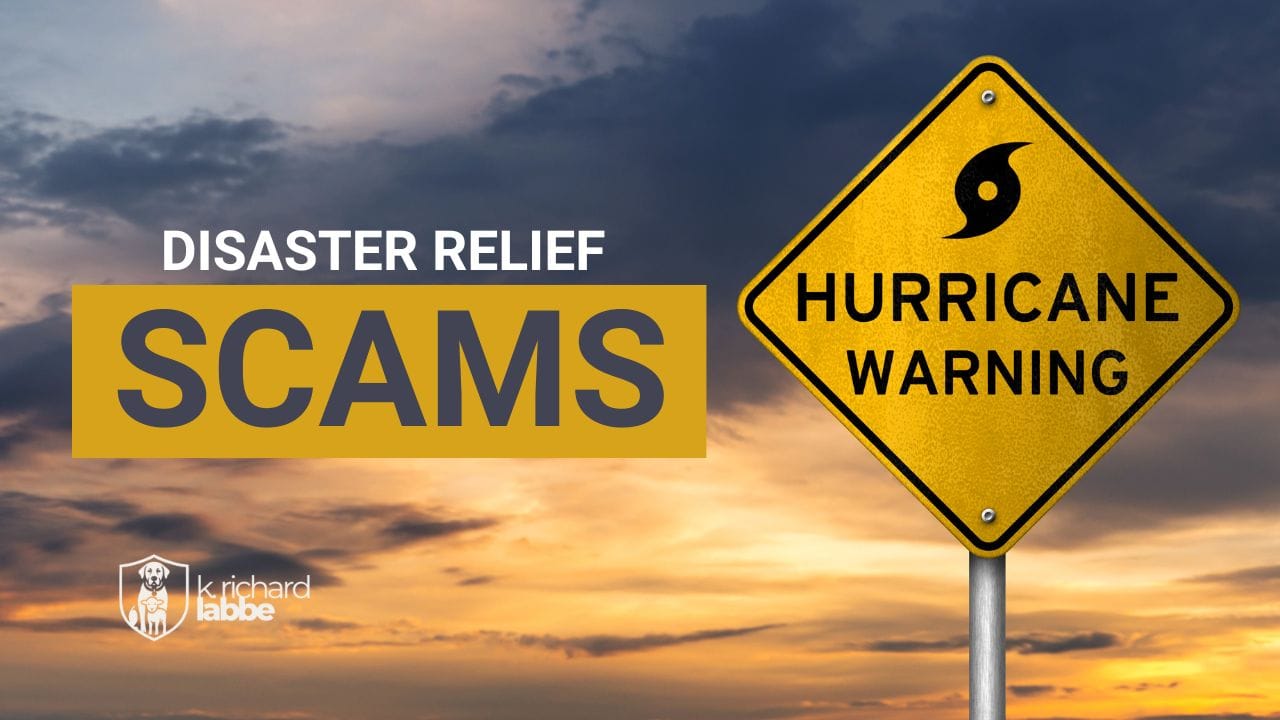When Disaster Strikes and Scammers Follow: How to Give Wisely in a Broken World
Wise Generosity in a World That Takes Advantage of Good Hearts

In the aftermath of a tragedy — a hurricane, a wildfire, a school shooting — something beautiful often happens. People step up. They give. They pray. They send supplies and funds. It’s one of the clearest signs that we are made in the image of a compassionate God.
But in that sacred window of human compassion, another story unfolds — one far more cynical.
Scammers strike.
They know that after disaster, people are vulnerable. Hearts are open. Attention is scattered. And wallets are accessible. So they create fake charities, launch fraudulent GoFundMe pages, or send out emails pretending to represent legitimate aid groups.
And just like that, they steal money meant for relief — and exploit both the pain of victims and the goodness of givers.
Why This Scam Works
This scam thrives not because people are gullible, but because people are generous.
We want to do something. We want to help. And we want to respond quickly. But in a rush to act, we sometimes bypass wisdom.
Scammers know this. So they:
- Copy the names and logos of real charities
- Set up urgent-sounding donation requests
- Exploit trending disasters for quick cash
- Use emotional images and language to override caution
It’s not just money they steal. It’s trust.
What This Says About Us
If you’ve ever given quickly and later realized it may have been a scam, don’t shame yourself. That impulse to give — to lean in, to share, to help — that’s a good thing. It reflects something deeply right.
But Scripture reminds us that in a fallen world, good impulses must be shaped by wisdom.
Jesus told His followers to be “wise as serpents and innocent as doves” (Matthew 10:16). That pairing is key. We’re not called to become cynical or closed. But neither should we give without thought.
Compassion and discernment aren’t opposites. They belong together.
How to Spot a Disaster Relief Scam
Here are a few signs something’s not right:
- The charity is unknown or unverifiable
- The link or website has odd spellings (un1tedway.org - where the "i" is the number 1)or extensions (like .co instead of .org)
- There’s pressure to give immediately
- The request came through social media, text, or email from someone you don’t know
- You’re asked to give through gift cards, wire transfers, or cryptocurrency
What to Do Instead
If your heart is stirred to give — praise God. Don’t lose that tenderness. Just channel it wisely.
- Give through trusted, established organizations.
If it’s a smaller group, research them first. Check for reviews, a working website, and transparency about how donations are used. - Go directly to the source.
If someone claims to represent an organization, don’t click their link. Look up the group yourself and donate through their official site. - Wait a day, if needed.
A 24-hour pause can give you time to vet the request — and make sure your gift lands where it’s needed most. - Talk about it.
Mention these scams to your church, small group, or family. Especially check in with seniors or anyone who may not know how to verify online giving platforms.
Wisdom That Frees Us to Love Well
There’s a subtle fear that if we become too cautious, we’ll stop being generous. But biblical wisdom isn’t about being tight-fisted. It’s about being effective.
In fact, when we give wisely, we maximize the good our generosity can do — and we deny scammers the chance to exploit pain for profit.
Jesus said, “It is more blessed to give than to receive.” But He also warned about wolves in sheep’s clothing. In a world where not every cry for help is real, the church has a chance to be both generous and grounded. Compassionate and clear-eyed.
That kind of giving changes the world — and it protects the vulnerable on both sides of the tragedy.
Stay safe. Be ready. Online and off.
Every effort has been made to ensure the accuracy and reliability of the information presented here. While Labbe Media, LLC strives to offer clear, well-researched guidance, this content is intended for educational purposes only and isn’t a substitute for professional advice tailored to your situation. We encourage you to use this material as a starting point—and to double-check details and consult trusted professionals when making important decisions.
